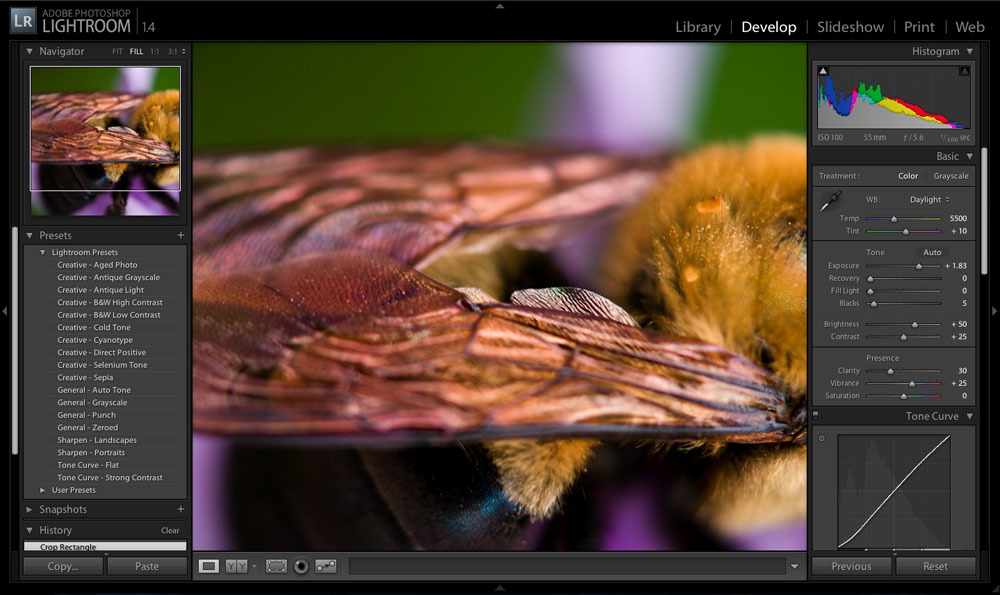Here’s a recent quote from Ken Rockwell’s blog:
The Canon 5D Mark II’s in-camera JPG processing is awful if you’re making huge prints. The in-camera processing of the raw data oversharpens harsh edges, adds too much contrast and smudges subtle textures into mush.
For the Canon 5D Mark II, if you’re making huge enlargements, shooting CR2 files and processing them with Adobe Lightroom 2.2 makes a world of improvement over in-camera processing. Shooting CR2 files in the 5D Mark II and processing them in Lightroom 2.2 makes files almost indistinguishable from the JPGs that come directly out of the Nikon D3X.
I find this quite amusing as Ken is infamous for bashing anyone who shoots RAW as a hack. Read his article on RAW vs. JPEG to see what I mean. If you can get beyond all of his opinions there is some pretty useful information in there.
Personally, I pretty much agreed with Ken and shot JPEG exclusively up until last year. I switched to shooting RAW with my Pentax K10D and post processing with Adobe Lightroom when I discovered how much better the RAW images looked coming out of Lightroom as JPEGs than they ever did coming out of the camera. The thing that makes it work for me is that I know the camera so well that I can picture what post processing adjustments I am going to need to do to an image as I’m peering through the viewfinder… much the same way a good film photographer considers how they will later develop and print an image in the darkroom.
I have lens specific import presets for my K10D’s RAW files that automatically apply my preferred adjustments during import (Sharpening, Detail, Clarity, Vibrance, Noise Reduction, Defringing, etc.). I shoot in auto white balance mode so all the post processing I have to do is make any required adjustments to the WB where the camera missed (which happens more often than not. Often, I can do this quite simply with a large number of images shot in the same light with less than 3 clicks (click on the first image, shift-click on the last, click on the WB pull-down tab, scroll to the correct WB preset and release). I certainly fail to see how this can be any more time consuming than fiddling with the in-camera WB settings while shooting.
I don’t recommend shooting RAW for beginners. Post processing can be a quagmire where inexperienced photographers often get lost and discouraged. However, once you get to the point that you can see what kinds of adjustments an image might need before you even release the shutter, shooting RAW starts to make a lot of sense. Used wisely, RAW images can open up a whole new world of creative and critical control. Best of all, you can always reset the image back to the default as-shot capture and do it all over again- all without creating multiple JPEG files to keep track of and store.
If you want to get an idea of what shooting RAW will do for your core image quality, look up the review of your camera on dpreview.com and navigate to the “Compared to (JPEG)” and “Compared to (RAW)” sections.
Camera Dojo just posted a pretty in-depth article on the same subject that is worth taking a look at.
January 18th, 2009 | Tags: Adobe, Camera Dojo, Canon 5D MK II, dpreview.com, Ken Rockwell, Lightroom, Pentax K10D, Photoshop, post processing, RAW vs JPEG, white balance | Category: technique | Comments (4)
